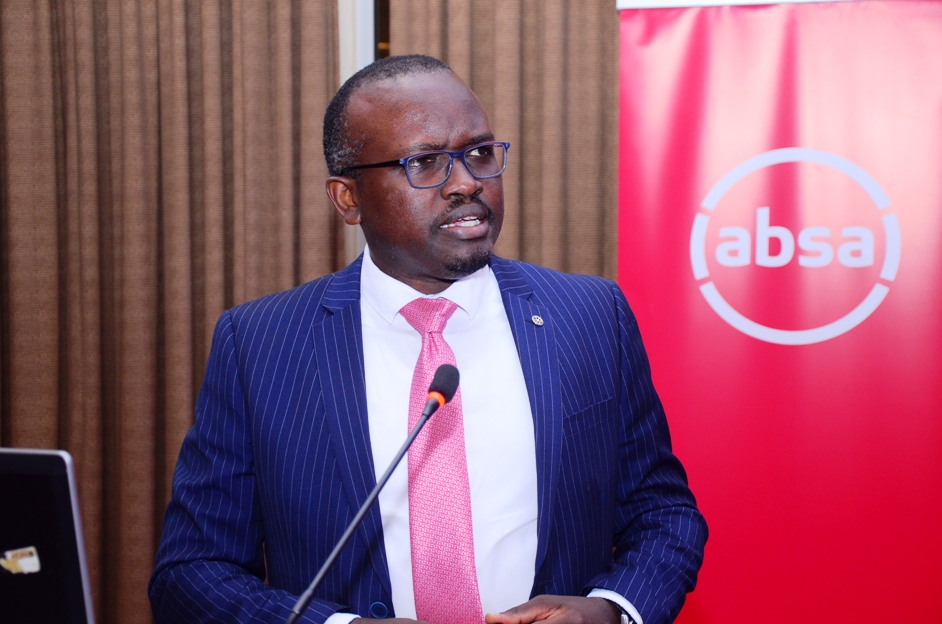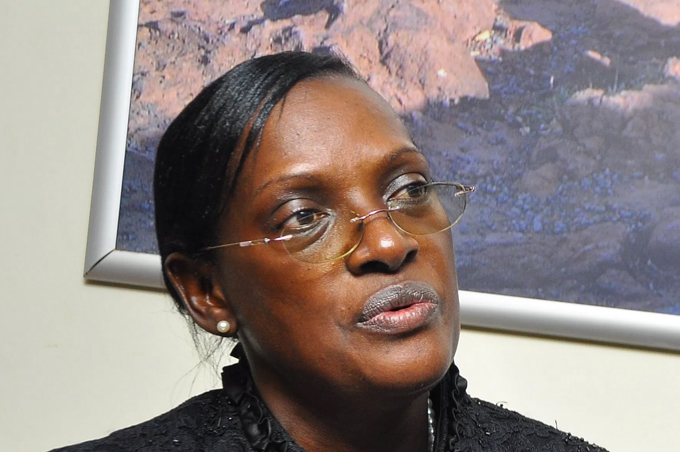David Wandera, the Head of Financial Markets at Absa Bank Uganda
The Absa Africa Financial Markets Index (AFMI) 2020 has revealed the state of Uganda’s financial markets and the economy at large.
Absa Group, in partnership with OMFIF, the Official Monetary and Financial Institutions Forum, conducted extensive quantitative research and data analysis of 23 countries in Africa with a view to gauging the progress of their financial markets infrastructure.
The AFMI evaluates financial market development in 23 countries, and highlights economies with the most supportive environment for effective markets.
The aim is to show present positions, as well as how economies can improve market frameworks to bolster investor access and sustainable growth.
The index assesses countries according to six pillars: market depth; access to foreign exchange; market transparency, tax and regulatory environment; capacity of local investors; macroeconomic opportunity; and enforceability of financial contracts, collateral positions and insolvency frameworks.
According to the index, Uganda emerged 10th out of the 23 countries. It’s the same position the country held in 2019. Overall, Uganda scored 52 out of 100. The index described Uganda’s economy as resilient.
David Wandera, the Head of Financial Markets at Absa Bank Uganda says “Uganda was considered a resilient economy because it has had strong economic growth in the previous years.”
This growth is expected to continue in 2021 despite the COVID-19 pandemic.
Wandera says Global economy is expected to recover at around 5% according to various estimates, with frontier markets growing faster. Uganda’s growth is expected at 4.5% in 2021.
How Uganda Performed on various pillars
On market depth, Uganda scored 42 out of 100, down from 45 recorded in 2019.
The country scored 67 on access to foreign exchange in 2020 compared to 71 scored the previous year.
Wandera says there has been more liquidity and transparency around Uganda’s exchange rate market.
“ In a world of uncertainties , Uganda’s currency/shilling largely remained stable. We are doing better than other countries in the region,” he says, adding that the Shilling is expected to average 3750 in 2021 although inflation risks remain.
Uganda performed better on market transparency, tax and regulatory environment after scoring 80 compared to 73 in 2019.
On the pillar of capacity of local investors, Uganda performed poorly; it scored 15 out of 100 in 2020 compared to 16 recorded a year earlier.
Absa’s Wandera says Uganda’s pension/savings sector needs to improve.
He says Uganda’s per capita investment is around US$76 while in markets like South Africa and Zambia, it stands at US$1000.
“Capacity of local investors is still wanting. It needs a lot of improvement,” he says.
However, Uganda’s performance on macroeconomic opportunity improved in 2020; the country scored 70 compared to 69 registered a year earlier.
Uganda is still doing badly on legality and enforceability of standard financial markets master agreements; the country scored 39 in 2020, up from 35 scored in 2019.
The AFMI report notes that in September 2020, Uganda launched its new primary dealer system, which is set to encourage secondary bond market activity and price discovery.
The central bank appointed seven commercial banks that will be able to take part in competitive bids above a certain size in the primary market, but other commercial banks will still be able to access the primary market, but only for smaller bids.
Wandera says that after the launch of the new Primary Dealership system, transactions increased significantly.
“There was an increase in activity of over 300%. This meas activity increased 3 times and that’s basically the secondary market,” he says.
Uganda also adopted the GMRA and is reviewing insolvency laws to make close-out netting enforceable.
According to Wandera, the enforceability of close-out netting is an important legal underpinning of derivative and repo markets and Uganda’s introducing of the legislation will allow for greater use of repos under the GMRA.
The report notes that Uganda has three credit ratings from international ratings agencies for its corporates, up from two last year, which contributed to its rise of three places in Pillar 3.
“The international ratings agencies generally do not have a local presence in the index countries, which has created opportunities for African agencies such as Johannesburg-based GCR. Most of GCR’s ratings are for South African corporates, but it has also rated firms in Uganda,” Wandera says.
According to the index, Uganda has a small export market share, but it has been growing rapidly in recent years and accounts for 1.6% of index exports, up from 1% five years ago.
Activity in 2021
Wandera says economic activity in 2021 will largely depend on the country recovers from the pandemic; how quickly the country rolls out COVID-19 vaccine will be key.

“We are slowly moving away from elections. Offshore investors are looking at elections keenly and once we are stable politically, we should see activity picking up,” he says.
He adds that the impending signing of the oil Final Investment Decision will be a huge milestone for the economy.
Once it’s signed, he says, it will positively affect financial markets activity.






